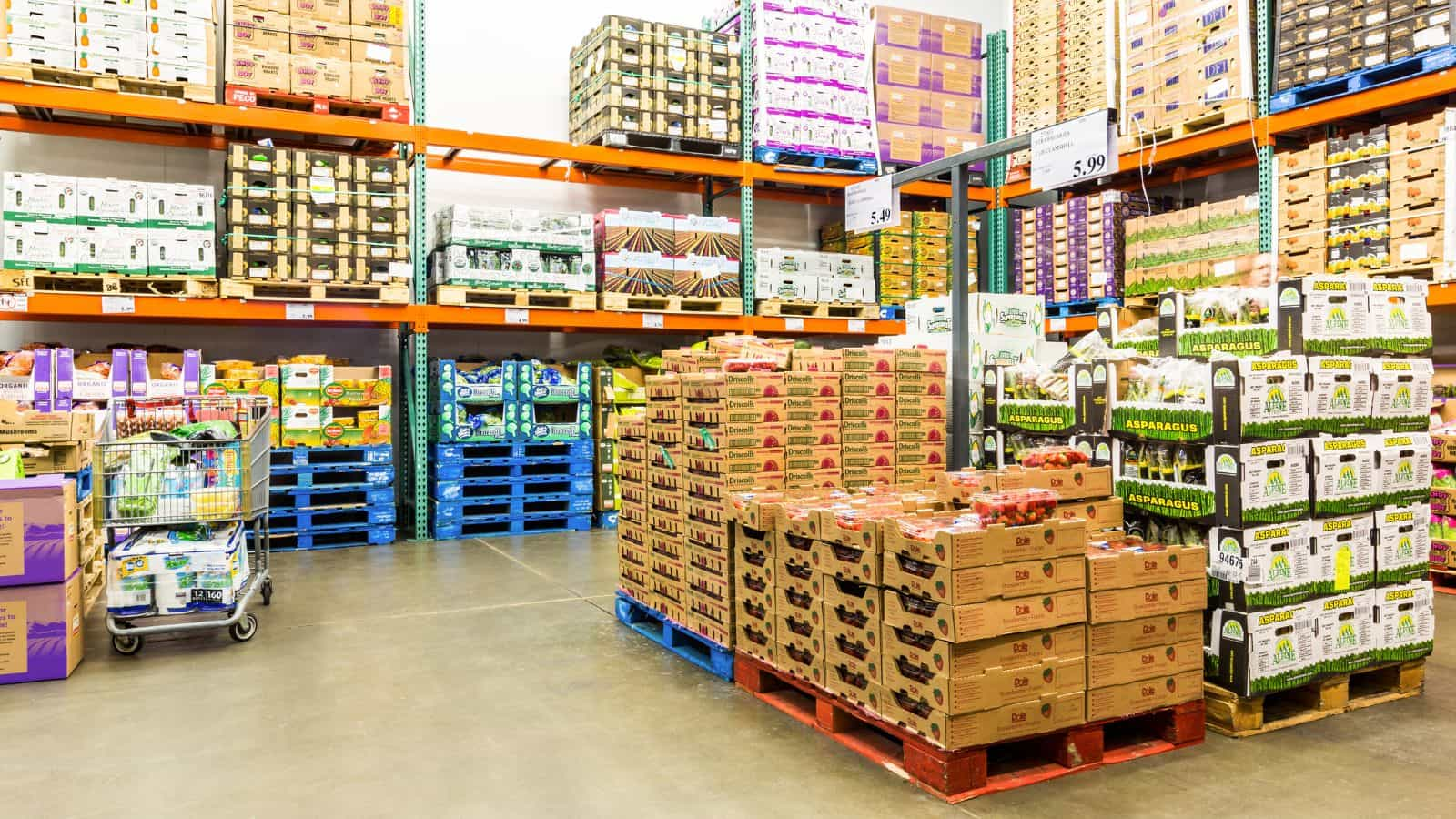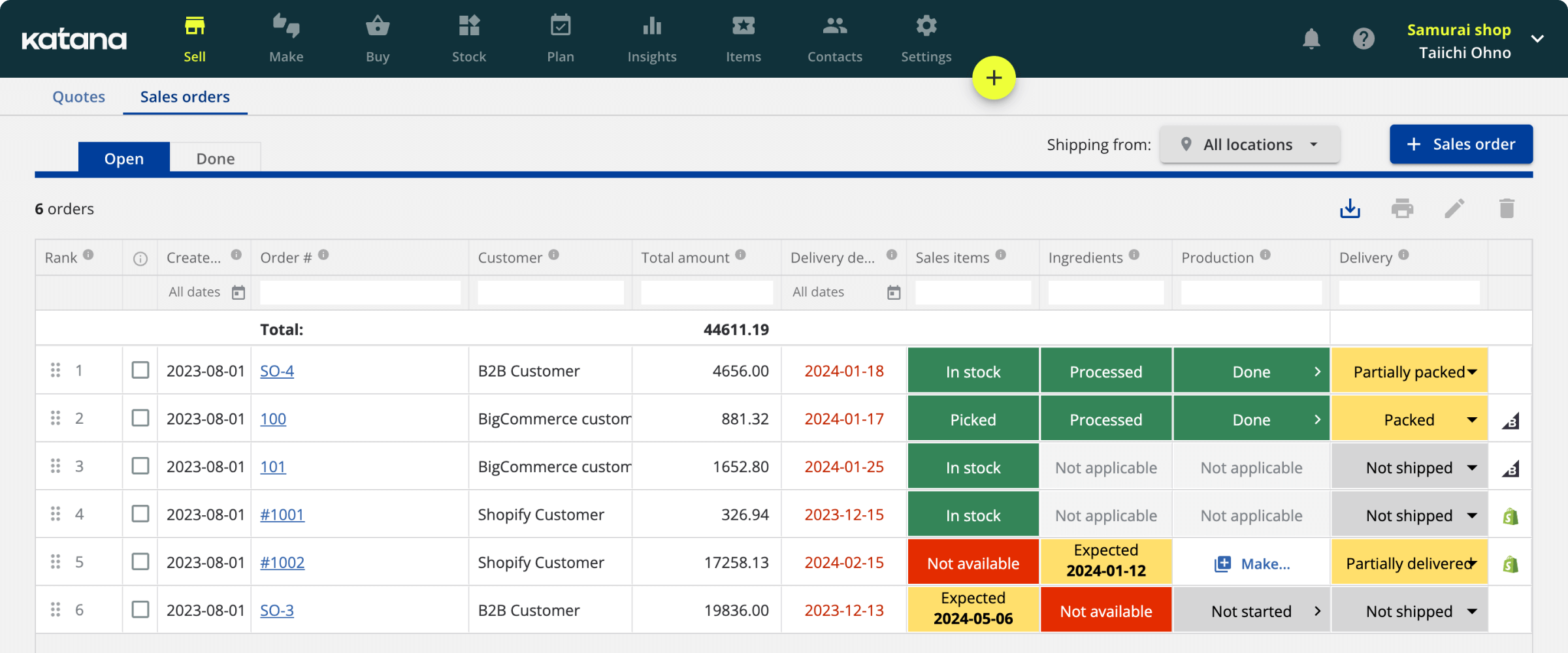Manufacturers vs. distributors vs. wholesalers: What’s the difference?
Manufacturers vs. Distributors vs. Wholesalers — what are the differences, and how do these businesses fit together? From simple breakdowns to in-depth comparisons, learn all about it here.

James Humphreys

Nowadays, it’s hard to tell apart and pinpoint what a business is and what is its specific role.
That’s why we’ve put together this article on manufacturers vs. distributors vs. wholesalers. In this article, we’ll explore how these businesses interact with each other along the supply chain. But, in making these comparisons, we’ve looked at these businesses from a traditional standpoint.
If you want to see how manufacturers are breaking away from this type of workflow, be sure to check out this section: Manufacturers going D2C and cutting out distributors and wholesalers
| Basis for Comparison | Manufacturers | Distributors | Wholesalers |
| Definition | Manufacturers design and produce goods or products using raw materials and components | Distributors purchase products from businesses and sell them to retailers or end consumers | Wholesalers purchase products in bulk from businesses and sell to retailers or businesses |
| Contract | Enter into an agreement with manufacturers | Do not sign agreements with distributors or manufacturers | |
| Promotion | Frequently engaged in brand and manufacturer promotion to boost sales. As a result, they serve as a sales agent for manufacturers | Are not involved in promotion | |
| Customers | Distributors | Wholesalers, retailers and end consumers | Retailers |
| Competing Items | Distributors frequently sign contracts promising not to market rival goods | Wholesalers do not sign a contract and are free to market competing goods | |
| Business model | B2B | B2B and B2C | B2B |
A quick breakdown of Manufacturers vs. Distributors vs. Wholesalers
Are you just looking for the cold hard facts about the differences between these types of businesses? We got you! Below is a simple breakdown of these workflows:
The major differences between Manufacturers vs. Distributors vs. Wholesalers?

Manufacturers, distributors, and wholesalers are all involved in the supply chain process of delivering products from producers of products to end consumers, but they have different roles and functions.
Manufacturers are companies that produce finished goods or products. They are responsible for designing, manufacturing, and assembling products. They often use raw materials and other components to create finished products. Manufacturers typically sell their products to distributors or wholesalers, who then sell them to retailers or end consumers.
Download the manufacturing e-book for free
Impress your friends and colleagues and leave your competitors fuming by learning to organize and scale your manufacturing.
Distributors are businesses that buy products from manufacturers and then resell them to retailers or to consumers directly. For example, food distributors buy directly from farmers and then sell to your local supermarkets. They typically maintain relationships with multiple manufacturers and offer a range of products to their customers. Distributors may also provide additional logistics, storage, and inventory management services.
Wholesalers purchase large quantities from manufacturers or distributors and then sell them to retailers or other businesses. They typically operate on a larger scale than distributors and often focus on a specific market or industry. Wholesalers may offer additional services like marketing, financing, and product support.
What is the difference: Wholesaler vs. Manufacturer?

A manufacturer is a business that creates products, typically in large volumes. They produce items from raw materials and components and then distribute them directly to retailers or wholesalers.
A company known as a wholesaler purchases huge quantities of goods from manufacturers and then sells them to retailers at a discount. Wholesalers are also responsible for storing the products until they are sold to customers.
On the other hand, retailers purchase products from manufacturers or wholesalers, depending on their needs, then resell them to consumers at a higher cost.
In the end, getting things into consumers’ hands requires the help of wholesalers and manufacturers. By providing different service levels along the supply chain, both groups contribute to ensuring that the goods people need are readily available.
The main difference between a manufacturer and a wholesaler is that manufacturers create goods from raw materials, while wholesalers buy products from manufacturers in bulk and resell them to retailers.
Manufacturers are responsible for producing enough products to meet customer demand. At the same time, wholesalers are mainly concerned with ensuring an adequate inventory at all times. Also, manufacturers usually have more control over pricing than wholesalers because they can produce items in large quantities at lower costs. Ultimately, both play an important role in providing the necessary goods to people worldwide.
Can a wholesaler also be a manufacturer?
Yes, a wholesaler can also be a manufacturer.
This is possible when the wholesaler can produce their products or modify existing ones. For example, they might have a factory where they can modify generic items and turn them into unique products that appeal to specific customers. They may also purchase bulk ingredients and use those to create their brand of finished goods for sale.
In either case, the wholesaler can manufacture and distribute their own products. This helps them cut costs since they do not need to rely on outside suppliers as much and gives them more control over quality. Ultimately, it allows them more flexibility in how they serve their customers.
Wholesaling with manufacturing capabilities offers several advantages compared to traditional wholesalers.
It can be more profitable because they control the entire production process, allowing them to maximize efficiencies and reduce costs. Additionally, they are not limited in what products they can offer as they have the capability to customize items according to customer demand. Furthermore, it allows them to build better relationships with their customers since they provide a unique product that cannot easily be found elsewhere.
In summary, wholesalers can also be manufacturers if they can produce or modify products for sale. This presents many advantages, including higher profits, greater flexibility in serving customers, and improved customer relationships due to providing customized solutions.
What is the difference: Manufacturer vs. Distributor?

A manufacturer designs and produces goods, while a distributor purchases those goods from the manufacturer and sells them to retailers or end consumers. Here’s a further comparison between the two:
- Role in the supply chain — A manufacturer is involved in producing goods, whereas a distributor is involved in distributing those goods to end consumers or retailers.
- Ownership of goods — Manufacturers own the goods they produce, whereas distributors own the goods they purchase from manufacturers.
- Production responsibility — Manufacturers are responsible for the design, production, and quality control of their products. Distributors, on the other hand, are not responsible for producing the goods they sell. Still, they may be responsible for quality control and ensuring that the products they distribute are up to standard.
- Sales and marketing — Manufacturers typically have their own sales and marketing departments to promote and sell their products. Conversely, distributors rely on their sales and marketing teams to sell the products they distribute.
- Order quantities — Manufacturers usually sell their products in large quantities to distributors, while distributors sell smaller quantities to retailers or end consumers.
- Profit margins — Manufacturers typically have higher profit margins than distributors since they produce the goods. In contrast, distributors profit by buying goods at a lower price and selling them at a higher price.
Is it better to buy from the manufacturer or a wholesaler?

Deciding whether it’s better to buy from the manufacturer or a wholesaler can take time and effort.
Buying directly from the manufacturer guarantees you receive authentic products. You will also have complete control over ordering and delivery of your desired items.
However, buying through a wholesaler often means discounted prices due to their bulk purchasing power, which may make them more cost-effective in some cases. They may offer more variety than what is available directly from the manufacturer.
Wholesalers also typically stock an inventory that allows for quicker delivery times than direct orders with manufacturers.
In the end, both strategies offer benefits and drawbacks, so it’s crucial to consider everything before making a choice. It could be beneficial to buy from both, depending on the situation. It’s important to research and consider your needs to choose the best option for you.
When making this decision, assessing the potential risks associated with each option is also important.
For example, buying directly from the manufacturer can be more expensive and may require longer wait times for delivery. On the other hand, when buying through a wholesaler, there is often less control over the product quality or authenticity of items purchased. Some unscrupulous wholesalers may try to exploit consumers by selling counterfeit or low-quality products at higher prices than they should be. In either case, checking reviews and feedback before making a purchase decision is always prudent.
Ultimately, whether it is better to buy from a manufacturer or wholesaler comes down to personal preferences and specific needs. Making the best choice for your needs requires careful study and evaluating potential dangers.
Manufacturers going D2C and cutting out distributors and wholesalers

As we mentioned at the beginning of the article, manufacturers are leaving this traditional way of getting their products out to customers and using their own sales channels and marketing.
According to McKinsey & Company, over 75% of customers prefer remote human interaction and digital self-serve over in-person interactions.
So, with so many customers turning to the internet, it only makes sense that manufacturers are going digital too, and leveraging this sales channel. Many implement tools such as cloud-based manufacturing software. This allows them to manage their sales alongside other essential manufacturing responsibilities such as production and supply chain management.
Are you a manufacturer looking to start managing your online sales and production lines? Then book a demo with Katana cloud manufacturing software and see how it can help you get your entire business under control and reach new heights.

James Humphreys
Table of contents
Get inventory trends, news, and tips every month
Get visibility over your sales and stock
Wave goodbye to uncertainty by using Katana Cloud Inventory for total inventory control
